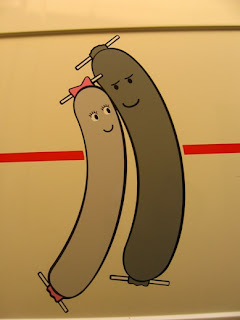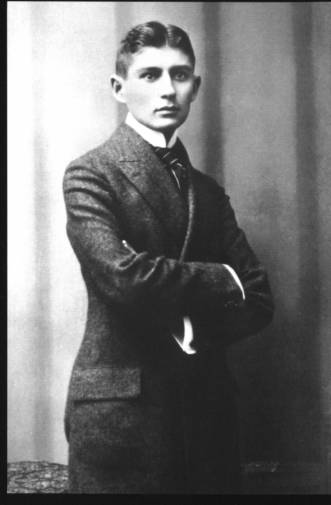As in "V V shoe a pleasant journey", which is what the conductor on the train to Olomouc wished us as we left the main station in Prague on Sunday, after first having wished it in flawless Czech.
Wait, though, gentle reader. This is
not going to be a pop at the linguistic gaucheries of the Czechs as they struggle in English; that might be the subject of a posting some time in the future, but as a non-native learner of what the locals here proudly claim to be one of the trickiest languages in the world (and I'm not arguing), I am painfully aware of the pitfalls faced by the wannabe speaker of foreign tongues. People. Glass houses. Stones.

No, my topic of the day is the much-maligned Czech railway system, which people I know have regularly described as antiquated, dangerous, slow, dirty, and many other less-than-flattering things. And, what's more, I am here to speak up in its favour.
For starters, it's still a complete system, unlike, say, Britain, where the road lobby's stranglehold on every governmnent of every political stripe for something like sixty years, coupled with Margaret Thatcher's deranged obession with privatising everything in sight, has reduced the network to whatever the word is for a skeleton that has had half the bones removed, with even quite big places no longer served by trains at all, the public no longer being referred to as 'passengers' but as 'customers', and an insane ticketing system that means it's quite feasible to have to spend more on a ticket from London to Manchester than from London to New York City.

Here in the Czech Republic, on the other hand, it may take a while to get there -
the Rough Guide uses the term 'superhumanly slow' to describe some of the trains - and some of the trains themselves are pretty long in the gear tooth - but a remarkable number of places of all sizes are still reachable; my little village, for example, is served by a branch line with twenty trains a day in either direction.
It's not perfect, of course, but then what is? The trains can get very crowded at times, particularly when the country's students, a passionately home-loving bunch, are heading home for one of their four-day weekends or back to their place of study after one. And some of the toilets are not for those of a faint-hearted disposition. Last year, too, the date on which the railway company started, with a great fanfare, running a bunch of swish new Italian-made
Pendolino trains (yes, the same ones as Virgin use in the UK - the first time I ever used one of those it broke down within half an hour of leaving Euston, leaving us marooned in Milton Keynes) unhappily coincided with the coldest cold snap in a long long time, which made their delicate Southern European systems pack up altogether and brought all of them to a grinding halt.

But they're running again now, and there are lots of other pluses to the railways here; the tickets are affordable - the 250 km from Prague to Olomouc cost me the equivalent of about 10 euro - the trains themselves are perfectly OK in the comfort department, and the dining cars on the long-distance trains are a traveller's dream. What better way can there be to travel round the country than sitting in one of those with a book, an iPod, a glass of good Czech beer, and all that wonderful scenery unrolling before your eyes?
Just make sure you enjoy it soon, before they privatise the system and wreck it forever.























